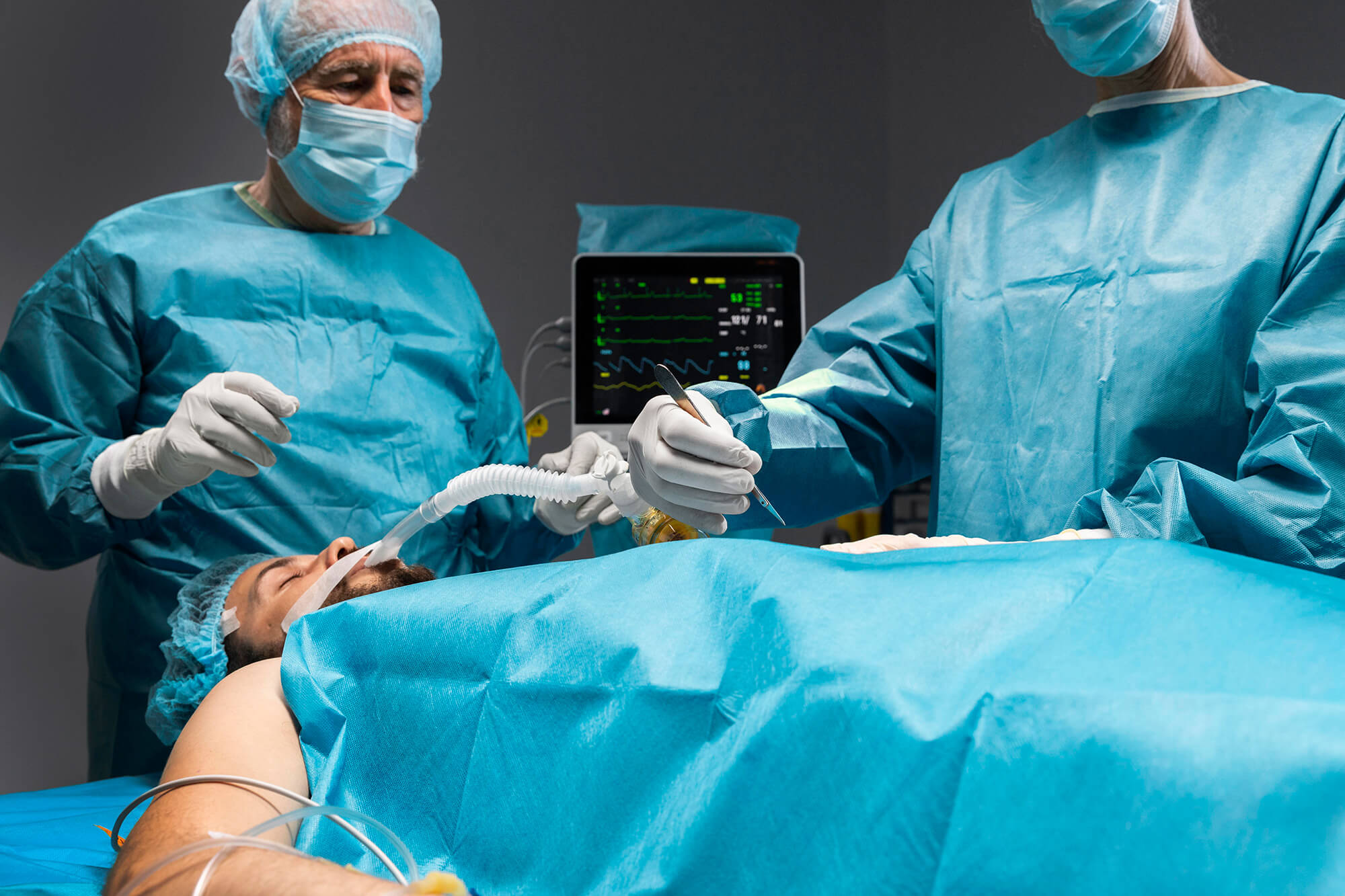What is gastric sleeve surgery?
Gastric sleeve surgery is a procedure where your gastroenterologist will remove up to 80% of your stomach and join the remaining portions together to form a tube or banana-shaped stomach. This procedure is performed to encourage weight loss for those people that are considered to be at least 100 pounds overweight. With a smaller stomach, you will feel full much quicker. Additionally, the surgery removes the part of your stomach that makes an appetite-boosting hormone. By reducing the amount of fat in your body, you put yourself at a lower risk for high blood pressure, high cholesterol, heart disease, diabetes, fatty liver disease, and other life-altering diseases. For more information about gastric sleeve procedures, contact GI Alliance to find a GI doctor near you.

What can I expect during a gastric sleeve procedure?
After you are placed under anesthesia, several small incisions are made in the stomach to allow small instruments and a camera to enter the abdomen. The liver is then lifted off of your stomach, and the blood vessels that are attached to the part of the stomach that will be removed are sealed and cut. Next, a sizer tube is placed into the stomach to ensure that the right amount of the stomach is removed. Then a stapler is used to divide and seal the stomach. Finally, the cut-off portion of the stomach is removed from the abdomen.
What happens after gastric sleeve surgery?
On the first day after your surgery, you will only be able to eat clear liquids. After 2 – 3 days, you can eat pureed food, and protein shakes for the next four weeks. After that first month, you will be able to eat solid foods again. Your GI Alliance physician can discuss any further dietary recommendations with you.
You will also need to adopt a few new eating habits, not only to lose weight but to give your body the nutrition that it needs. You should:
- Avoid high-calorie sodas and snacks.
- Don’t drink while you eat. This could cause your stomach to overfill.
- All solid food needs to be chewed thoroughly before being swallowed.
- Take vitamin and mineral supplements every day.
- Try to only drink liquids a half-hour after finishing a meal.
Are there any risks with gastric sleeve procedures?
Gastric sleeve surgery is an effective tool that aids some in losing weight, but there are some risks involved. Due to the nature of the surgery, there are a few short-term issues that can arise, like bleeding, pain, and blood clots. Over the long term, patients can experience problems due to a lack of nutrition. In addition, if the patient does not monitor their eating habits, the gastric sleeve can dilate and allow larger amounts of food to be consumed. Though rare, other conditions can occur, such as stomach ulcers, nausea, stomach obstructions, or abscess.

